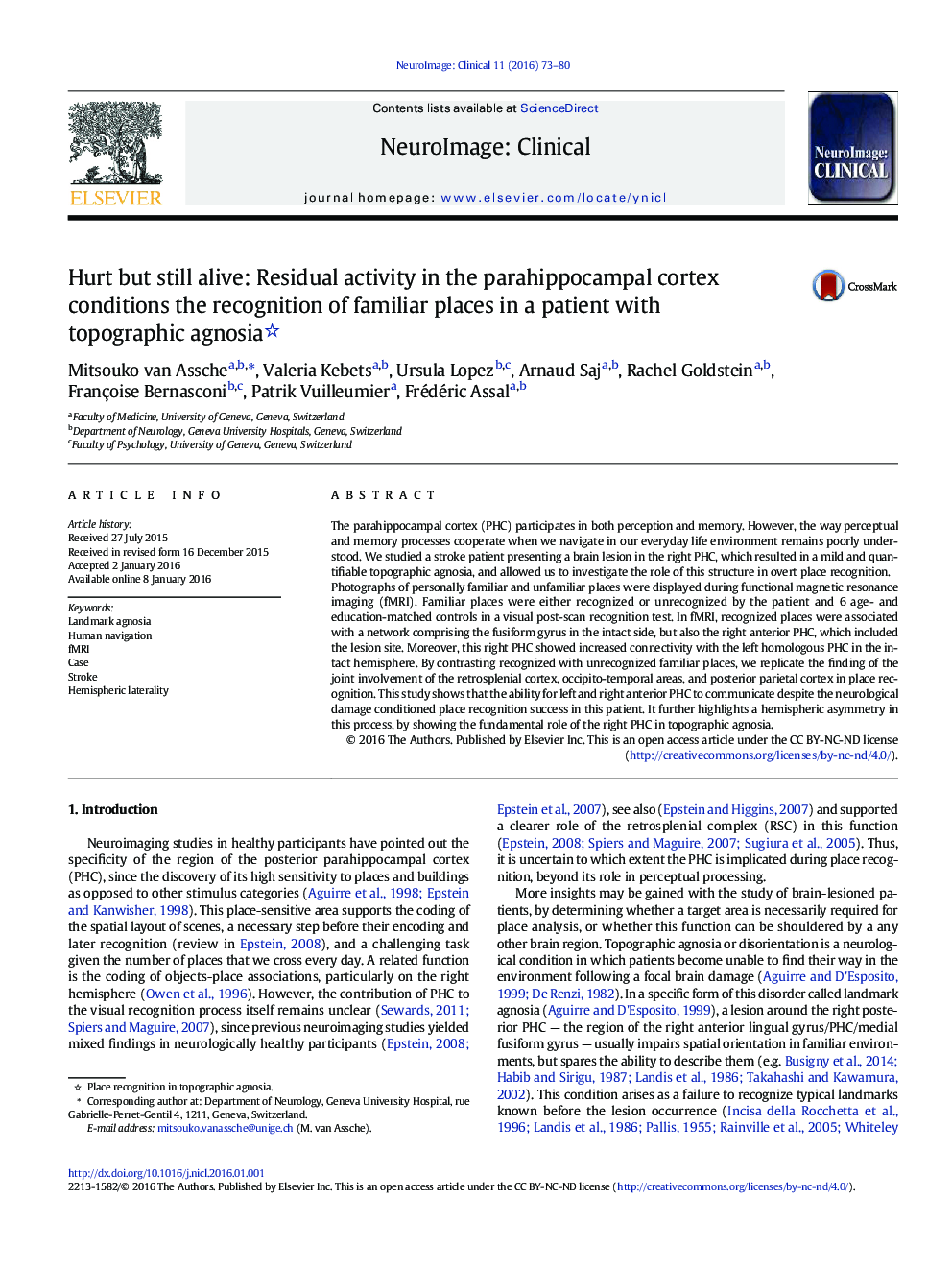| Article ID | Journal | Published Year | Pages | File Type |
|---|---|---|---|---|
| 3074899 | NeuroImage: Clinical | 2016 | 8 Pages |
•We studied a right occipito-temporal stroke patient using functional MRI.•This patient showed only mild signs of topographic agnosia for familiar places.•The right anterior parahippocampal cortex was recruited when places were recognized.•It showed increased connectivity with the left homotopic region during recognition.
The parahippocampal cortex (PHC) participates in both perception and memory. However, the way perceptual and memory processes cooperate when we navigate in our everyday life environment remains poorly understood. We studied a stroke patient presenting a brain lesion in the right PHC, which resulted in a mild and quantifiable topographic agnosia, and allowed us to investigate the role of this structure in overt place recognition.Photographs of personally familiar and unfamiliar places were displayed during functional magnetic resonance imaging (fMRI). Familiar places were either recognized or unrecognized by the patient and 6 age- and education-matched controls in a visual post-scan recognition test. In fMRI, recognized places were associated with a network comprising the fusiform gyrus in the intact side, but also the right anterior PHC, which included the lesion site. Moreover, this right PHC showed increased connectivity with the left homologous PHC in the intact hemisphere. By contrasting recognized with unrecognized familiar places, we replicate the finding of the joint involvement of the retrosplenial cortex, occipito-temporal areas, and posterior parietal cortex in place recognition. This study shows that the ability for left and right anterior PHC to communicate despite the neurological damage conditioned place recognition success in this patient. It further highlights a hemispheric asymmetry in this process, by showing the fundamental role of the right PHC in topographic agnosia.
Graphical abstractFigure optionsDownload full-size imageDownload as PowerPoint slide
